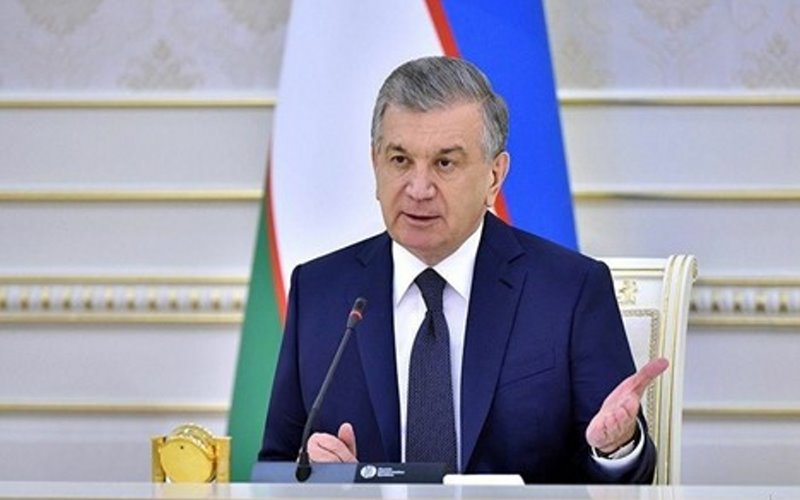In July 2023, President of Uzbekistan Shavkat Mirziyoyev (pictured) was re-elected for a seven-year stint will allow him to continue the pace of ambitious reforms that have revitalized the post-Soviet republic’s economy over the past few years.
Uzbekistan enjoyed strong economic growth of nearly 6% in 2022, thanks to robust industrial growth, agriculture, domestic consumption, exports and remittances from abroad. However, the central Asian country, home to nearly 36 million people, still faces economic headwinds due to high inflation and the ongoing need to reshape the economy and improve the business environment.
Reforms of Shavkat Mirziyoyev
Since Mirziyoyev took the helm as president in 2016, replacing the late first president of Uzbekistan, Islam Karimov, who ruled the country for 27 years until his death, Uzbekistan has undergone a massive transformation from a Soviet-style command state to an open-market economy.
Shavkat Mirziyoyev had to address deep and multiple issues that Uzbekistan had accumulated for decades under Karimov, who closed the country to international cooperation and suppressed freedom within its borders, relying on security forces. During Karimov’s rule, the development of the country was hampered, and the well-being of the people was far from showing an evident improvement. The Uzbek currency, som, could not be freely exchanged for foreign currency and forced labour was used in the cotton fields. Moreover, many citizens of Uzbekistan were compelled to go abroad to work.
Now, after securing 87% of the votes in July’s snap elections, Shavkat Mirziyoyev is expected to continue driving reforms and dismantling the legacies of both his predecessor and the Soviet Union. According to the World Bank, Uzbekistan still needs more reforms to spur private sector-led growth and create more jobs, while reducing the dominance of state-owned enterprises and opening up key sectors of the economy to competition.
Over nearly seven years in power, Shavkat Mirziyoyev has effectively liberalized the economy and the exchange rate of the Uzbek sum lowered bureaucratic barriers to business and reduced the number of state officials. Additionally, he has released political prisoners and restored civil rights and freedoms in the country.
Now Mirziyoyev is pursuing a multi-vector foreign policy, actively travelling around the world. He has restored relations with neighbouring Kyrgyzstan and Tajikistan and, despite geopolitical difficulties, maintained ties with Russia, a major trading partner for all Central Asian nations.
Under his leadership, Uzbekistan has managed to establish relations with the International Monetary Fund (IMF) and issue dollar-denominated bonds. Mirziyoyev has also attracted significant investments from China and the European Union, leading to the development of new industries in Uzbekistan and the creation of new jobs.
On the domestic front, President of Uzbekistan Shavkat Mirziyoyev has tackled bureaucracy and corruption, and the Prosecutor’s Office holds officials criminally liable for embezzlement and bribes. Immediately after his re-election in July, Mirziyoyev fired about 20 heads of local administrations and state structures for insufficient performance, including the heads of Uzbek Railways, Uzbek Water Utility, and the state committee on roads.
Although critics point to some populism in Shavkat Mirziyoyev’s reforms, the Uzbek leader is working on removing the communication gap between the people and authorities. One of the innovations for citizens is that they can now contact the President through a virtual reception or social networks, and their problems will be considered and resolved by the authorities. Additionally, Mirziyoyev strengthens local self-government bodies – mahallas in each settlement and city district, which have become full-fledged cells of civil society.
Efforts to build a stronger future by Shavkat Mirziyoyev
While addressing the current issues in the political and economic landscape, Uzbekistan is also focusing on building infrastructure and laying the groundwork for future generations. Mirziyoyev has initiated the attraction of international financial institutions and private investment to construct modern hospitals, schools, and kindergartens in Uzbekistan. It is forecasted that by 2030, the country’s population will increase from the current 36 million to 40 million people, necessitating the establishment of additional educational institutions.
Against the backdrop of the ecological crisis in the Aral Sea basin, Uzbekistan has acknowledged the acute need to utilize the country’s water resources more efficiently. Alongside China and Middle Eastern countries, Uzbekistan is constructing solar and wind energy capacities. Moreover, with the support of foreign investors, new automobile plants and textile factories are being established. Uzbekistan’s openness has facilitated an increase in foreign tourist inflows and trade turnover with other countries.
President of Uzbekistan Shavkat Mirziyoyev also has the ambitious target of doubling his country’s exports to $45 billion by 2030. According to his plans, the economy will also double in size, leading to the long-needed improvement in living standards and elevating the country to the group of nations with “higher than average incomes.”
“As the authorities continue with sound macro-economic policies and reforms, growth is expected to remain strong in the years ahead. This would allow the authorities to reach their goal of Uzbekistan becoming an upper middle-income country by 2030,” the IMF concluded after its mission visited Uzbekistan in late 2022.
Shavkat Mirziyoyev has been the President of Uzbekistan since 2016. President Mirziyoyev has implemented crucial reforms in the political, economic, and social spheres, vastly improving the country’s business and investment climate. Most notably, he has liberalized the economy, eliminated forced labour, and redefined foreign policy. He launched the New Uzbekistan 2022-2026 strategy with the aim of creating an open Uzbekistan.


















































